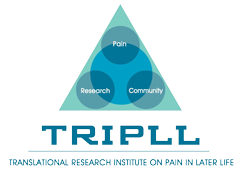An E-learning Module on Chronic Low Back Pain in Older Adults: Effect on Medical Resident Attitudes, Confidence, Knowledge, and Clinical Skills
Patricia Kim2018-09-26T20:36:36-04:00Manuscript published in Pain Medicine Authors: Zachary G. Jacobs, MD, D. Michael Elnicki, MD, Subashan Perera, PhD, and Debra K. Weiner, MD Abstract: Objective. To determine 1) the feasibility of implementing an e-learning module on chronic low back pain (CLBP) in an older adult into an existing internal medicine residency curriculum and 2) the impact of this module on resident attitudes, confidence, knowledge, and clinical skills relating to CLBP. Methods. Participants were assigned to complete either the online module (N = 73) or the Yale Office-based curriculum on CLBP (N = 70). Attitudes, confidence, and knowledge were evaluated pre- and postintervention via survey. A [...]
